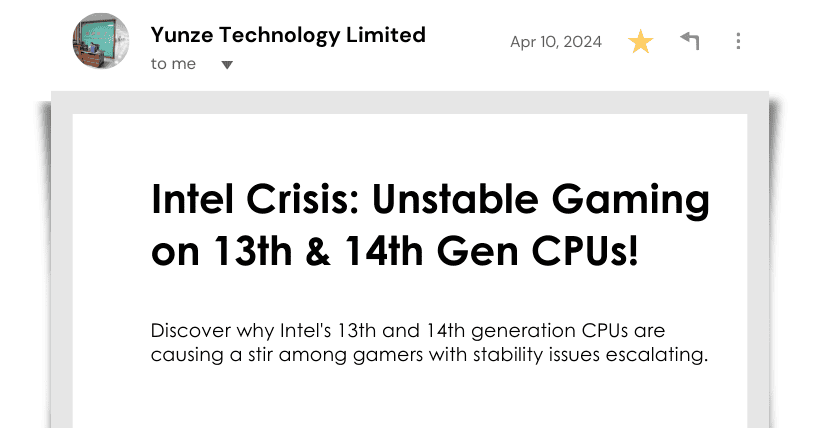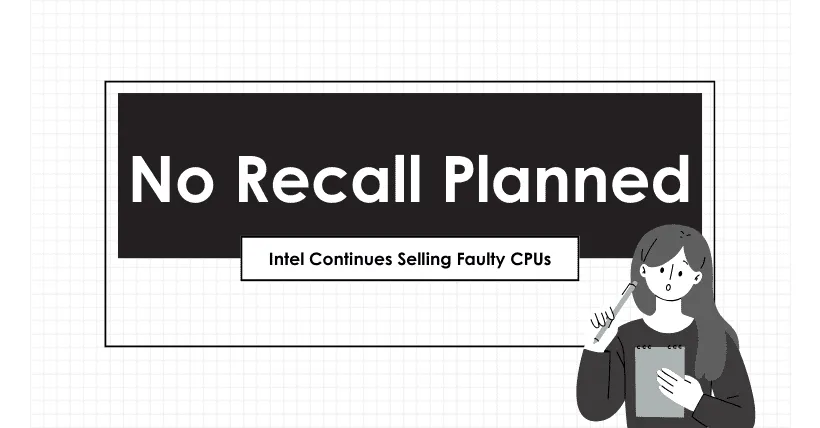In recent weeks, there has been a lot of uproar about defects in Intel’s 13th and 14th generation CPUs. A gaming publisher tested these chips and found almost 100% of them had issues. This has sparked investigations by users and Intel. Finally, a week ago, Intel identified the root cause: a microcode algorithm error causing increased voltage.

The good news is Intel plans to address this with a patch expected in mid-August. The bad news is Intel won’t accept returns or halt sales of affected CPUs. Worse still, the damage to the chips appears irreversible, leaving many users unhappy.
According to Tom’s Hardware, the voltage-related damage is permanent; the microcode patch can prevent further damage but won’t fix existing issues, causing widespread concern.
The Verge contacted Intel regarding returns and sales but received surprising responses:
- Intel has not halted sales or clawed back any inventory. It will not do a recall, period. The company is not currently commenting on whether or how it might extend its warranty. It would not share estimates with The Verge of how many chips are likely to be irreversibly impacted, and it did not explain why it’s continuing to sell these chips ahead of any fix.
- Intel’s not yet telling us how warranty replacements will work beyond trying customer support again if you’ve previously been rejected. It did not explain how it will contact customers with these chips to warn them about the issue.
Intel won’t stop sales or recall stock. There are no plans to extend warranties either. Intel hasn’t disclosed the number of affected chips or explained why sales continue before the patch.
Currently, Intel hasn’t clarified its warranty replacement process, only suggesting users denied warranty contact customer support. How existing users will be informed of these risks remains unclear.
Windows Central discovered at a Q&A session that all Raptor Lake chips running at 65W could potentially be damaged, broadening the impact beyond previously thought i7 and i9 chips, complicating matters further.
This incident undoubtedly affects user confidence in Intel, potentially leading some to consider AMD. Ironically, AMD faced recalls due to a spelling mistake recently. In this Intel vs. AMD “fiasco,” consumers can only sigh and hope for better solutions ahead.
Source: Internet

Disclaimer:
- This channel does not make any representations or warranties regarding the availability, accuracy, timeliness, effectiveness, or completeness of any information posted. It hereby disclaims any liability or consequences arising from the use of the information.
- This channel is non-commercial and non-profit. The re-posted content does not signify endorsement of its views or responsibility for its authenticity. It does not intend to constitute any other guidance. This channel is not liable for any inaccuracies or errors in the re-posted or published information, directly or indirectly.
- Some data, materials, text, images, etc., used in this channel are sourced from the internet, and all reposts are duly credited to their sources. If you discover any work that infringes on your intellectual property rights or personal legal interests, please contact us, and we will promptly modify or remove it.



